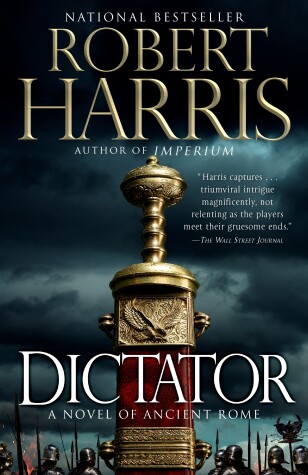
brokentune
Written on Dec 26, 2017
All that will remain of us is what is written down.
I have not read Imperium (Book #1) or Lustrum (Book #2), yet, but if this last book in the trilogy is anything to go by, I am going to enjoy the first two books very much.
Dictator was not exactly what I had expected: Yes, it was a historical novel based on the life of Marcus Tullius Cicero, but it did not read like the usual run down of a sequence of events and dates that I had for some reason feared it might be. In fact, the biographical facts are taking a back seat in this book and exist to provide a framework of what I can only describe as tense political thriller - which I guess is even more gripping if you don't know Cicero's biography.
Harris chose a tone of narration that does not try to emulate what we imagine speech patterns or use of words to have been like in Ancient Rome, but instead reflects a more modern approach, and he makes it work. At least, I liked it, even if I can see that it may seem like it might deprive the book of some of that "ancient" setting. The politicking, intrigue, treason, madness, revenge plots make up for it in way that is less I, Claudius and more House of Cards (the UK version!).
In a way it feels like Harris took an old story and set it in the arena of modern politics. Maybe he wanted to show that not that much has changed in 2000 years of politics?
If that is what he tried, I think he succeeded.
Another aspect, Harris succeeded in is the portrait of the main characters - Cicero, Caesar, Marc Antony, Octavian, and all of the senators we meet along the lines.
Historical accuracy may vary, of course, but overall I could not say that any one character was portrayed as one-dimensional.
I also really liked that part of the intrigues were spun by the wives, sisters, widows of the main players and that these were shown as an integral part of Roman society.
I look forward to reading the rest of the series.
